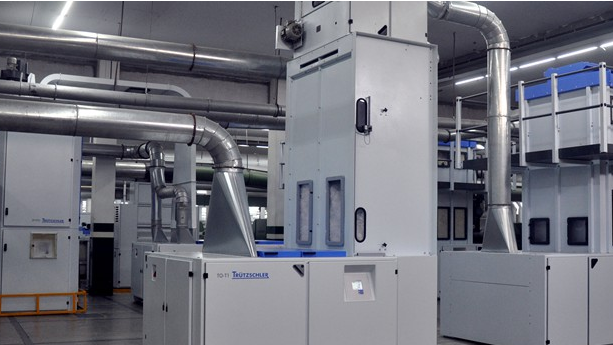APTMA Punjab Chief Urges Government To Resolve Textile Industry’s Issues
The All Pakistan Textile Mills Association (APTMA) Punjab Chairman Aamir Fayyaz has urged the government to resolve the textile industry issues relating to cotton, liquidity, competitiveness, taxes, zero rating facility and the Long Term Finance Facility and enable the industry to undertake investment worth $1 billion per annum.
“It is highly unfortunate that $15 billion export-oriented textile industry, employing some 15 million work forces and consuming 15 million cotton bales is being strangled to death in Pakistan only due to the lack of focus of government and rising burden of taxes on exports,” he added.
Addressing a press conference at the APTMA Punjab office on Friday afternoon, he said Pakistan exports have nose-dived by $3 billion during the financial year 2015-16, out of which a drop in textile and clothing exports was $1 billion. He said it is worth pointing out that the textile and clothing exports of Bangladesh and Vietnam have registered an increase of $2 billion and $4 billion respectively during the same period. He further apprehended that the exports in Pakistan would continue declining unless the cost of doing business is lowered by the government.
“The cotton production had fallen by 40 percent last year, resulting in decline of 15 percent in cotton sowing this year,” he said and added that the textile industry was highly dependent on imported cotton now. Therefore, duties and taxes on import of cotton would make the entire value chain uncompetitive. “This situation calls for the withdrawal of 4 percent customs duty and 5 percent sales tax on import of cotton,” he stressed.
The APTMA Punjab chief also demanded liquidation of all the pending refunds of the textile industry to discharge liabilities and process further export orders. He said the government should also provide DLTL to all exports to mitigate the incidentals of innovative taxes and levies.
According to him, the Gas Infrastructure Development Cess on gas and surcharges on the electricity has increased cost of production and the prevailing odd circumstances demand their withdrawal to revive competitiveness in line with the regional competitors. “The government should notify the NEPRA-determined tariff without the incidents of surcharges.”
He lamented that the zero rating facility was also not implemented in true letter and spirit. This situation will put the industry into a cumbersome state of affairs therefore the facility should be in accordance with the announcement made by the prime minister. He added that the government should also allocate sufficient funds under the LTFF to propel up the prospective investors to take investment initiatives. “This scheme should be amended to make it eligible to indirect exports,” he said.
He expressed the hope that the government would prioritise the textile industry in its policies to produce exportable surplus, double textile exports and create 3 million additional jobs in the country.
We buy and sell textile machinery

Leave a Reply
You must be logged in to post a comment.